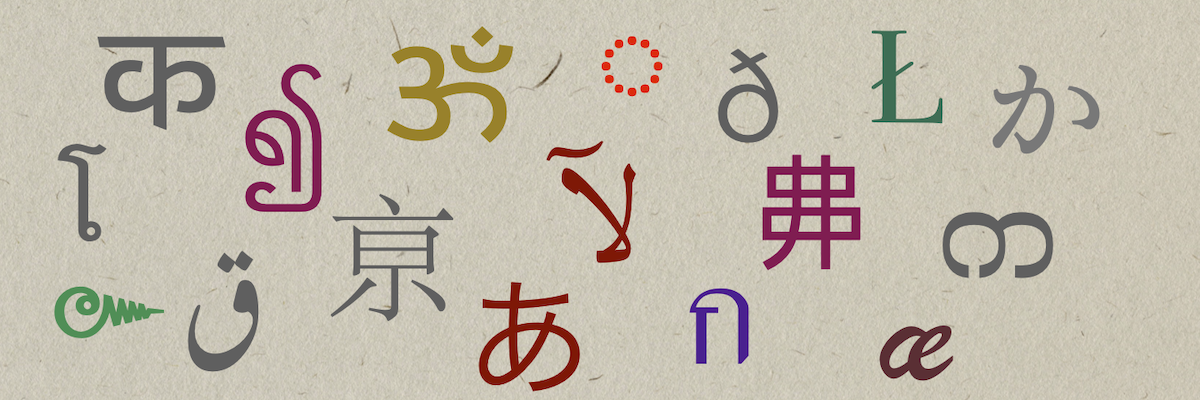
Typographic Survey of Global Scripts (Part 2)
with
Kamal Mansour
Curious about the variety of written forms around the world? Eager to delve into the form and function of various scripts? Wish you could learn about working with type in multi-script settings? Typeface designers, graphic designers, typographers, lettering artists, and language enthusiasts will all find this class informative and stimulating. Each class session includes significant time for questions and active discussion.
In Part 1 of this course, we discussed the history and typography of the following scripts: Latin, Perso-Arabic, Devanagari, Japanese & Chinese, Thai & Burmese. We also explored the Unicode Standard and the OpenType Specification to understand how they enable digital text.
In Part 2, we extend our survey to another handful of scripts from around the globe: Greek, Cyrillic, Hebrew, Korean Hangul, Ethiopic, and Tamil. Each of these scripts comes with a significant historical record, ready to grant us new insights into the human skill of representing language in a broad variety of written forms. The first three of the scripts are alphabets that developed from the earliest form of writing found in the Eastern Mediterranean, while the final three are syllabaries based on remarkably divergent models. Each of the scripts has travelled along a unique path from handwritten to typographic form. Each has successfully made its way into the digital realm.
Won’t you join us?
Required Materials
- Computer or device with reliable internet connection
- Zoom app recommended
About Kamal Mansour

